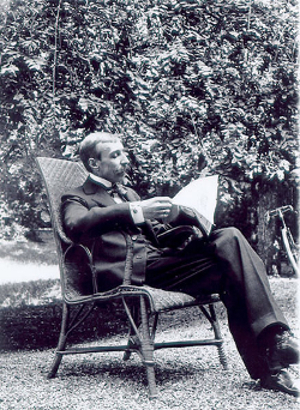Baroque poetry is that which was developed during the Baroque period. Baroque, or 17th century, was an artistic and literary movement that began in the 15th century during the European Renaissance.
In Brazil, baroque began in the 16th century and was introduced by the Jesuits. Its main exponent Gregory of Matos which became known as the “Mouth of Hell”.
That's because he wrote a lot of satirical poetry, where he made fun of different aspects of society. In addition to satirical, Gregory produced lyrical, religious and erotic poetry.
In Portugal, the writer and speaker deserves to be highlighted. Father Antônio Vieira who wrote poems, letters, sermons and novels. During the colonization period of Brazil, he was in charge of catechizing the Indians.
Main features
- Duality, contradiction and complexity;
- Obscurantism and sensualism;
- Religious and profane themes;
- Vocabulary preciousness;
- Appreciation of details;
- Far-fetched, dramatic and exaggerated language;
- Use of figures of speech: antithesis, paradox, hyperbole and metaphors;
- Cultism or Gongorism (word play);
- Conceptism or Quevedism (game of ideas).
Learn more about Cultism and Conceptism.
Authors of Baroque in Brazil
In Brazil, the starting point of literary baroque was the publication of the work “Prosopopoeia” (1601) by Bento Teixeira.
The main writers of Brazilian baroque were:
- Bento Teixeira (1561-1618)
- Gregory of Matos (1633-1696)
- Manuel Botelho de Oliveira (1636-1711)
- Friar Vicente de Salvador (1564-1636)
- Friar Manuel da Santa Maria de Itaparica (1704-1768)
Authors of Baroque in Portugal
Baroque in Portugal had as its starting point the year of the death of the writer Luís de Camões, in 1580.
The main writers of Portuguese baroque were:
- Father Antônio Vieira (1608-1697)
- Father Manuel Bernardes (1644-1710)
- Francisco Manuel de Melo (1608-1666)
- Francisco Rodrigues Lobo (1580-1621)
- Soror Mariana Alcoforado (1640-1723)
Examples
To better understand the language and content of Baroque poetry, below are some examples from Brazil and Portugal:
Brazilian Baroque Poetry
Example 1
"The Sun Lamp had covered,
To the World, its serene and pure light,
And the sister of the three names discovered
Its soft and circular figure.
From Dite's portal, always open,
It had arrived, with the dark night,
Morpheus, that with subtle and slow steps
Atar comes from mortals the lax limbs.”
(Excerpt from the work "Prosopopoeia” by Bento Teixeira)
Example 2
The whole without the part is not the whole,
The part without the whole is not part,
But if the part makes it all, being part,
Do not say that it is part, being whole.
In every sacrament is all God,
And everyone watches in full anywhere,
And done in parts all over everywhere,
Anywhere is always the whole.
The arm of Jesus is not part,
Since Jesus was done in parts,
Watch each part for its part.
Not knowing part of this whole,
An arm, which they found, being part,
Told us all the parts of this whole.
(Sonnet of Gregório de Matos)
Portuguese Baroque Poetry
Example 1
Bernardo da eternity climbs the map,
leave the deadly strain of old Adam,
by the wood from the Cross to the Empyrean climbs,
starting in Bethlehem in the poor limpet.
More than a king can be and more than a pope
who from his vices heart cuts off,
that Samson's grit is all scale
and the scythe of death shaves everything!
The flower of life is the color of a tulip,
also from the dry years is garlopa,
that cuts like the sea cuts the sloop.
There is no need for the ditch to cut the gut,
if in the vital part everything is already up.
It's ape!, oop!, oop!, oop!, oop!
(Sonnet by Father Antônio Vieira)
Example 2
Here is a thousand ways: Perchance
Which of these takes us to the village?
All go alone: only this one goes trodden;
But if, by being trodden, it ensures me?
No: since the beginning has it lasted
From error this custom, to the given world;
To be that wrong way,
What is more passage and beauty.
Will I not pass in the end, fearing luck?
Also, so much fear is disconcerting:
Whoever passes on, so care.
What will I do next, uncertain in an uncertain world? -
Seek the true North in Heaven,
For on earth there is no right way.
(Sonnet by Francisco Manuel de Melo, in "Metric Works")
To learn more about Baroque, read also:
- Baroque
- Baroque style
- Baroque art
- Baroque in Brazil
- Baroque in Portugal
- The Language of Baroque
- Baroque Characteristics
- Exercises on Baroque


